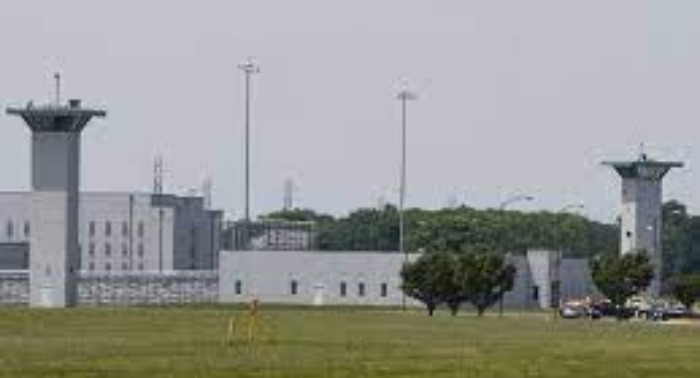In Oklahoma, an individual was executed on Thursday for the 2001 fatal shootings of two men in Oklahoma City, a case in which he maintained his actions were in self-defense.
59-year-old Phillip Dean Hancock received a lethal injection comprised of three drugs at the Oklahoma State Penitentiary. He was pronounced dead at 11:29 a.m. Hancock’s execution proceeded after Governor Kevin Stitt, a Republican, chose not to grant clemency, disregarding a recommendation for clemency from the state’s Pardon and Parole Board.
Abraham Bonowitz, the executive director of Death Penalty Action, an organization opposing the death penalty, criticized the governor’s prolonged decision process, citing the distress caused to the victims’ families, Hancock’s supporters, prison staff, and Hancock himself.
The governor’s office did not provide an immediate response when asked for comments regarding the decision to refuse clemency or the reasons for the delay in making this decision.
Hancock had consistently claimed that his shooting of Robert Jett Jr., 37, and James Lynch, 58, was an act of self-defense following an assault by the two men in Jett’s home in southern Oklahoma City. During a clemency hearing earlier in the month, Hancock’s lawyers argued that Jett and Lynch were involved in criminal motorcycle gangs and that Jett had tricked Hancock into coming to his house unarmed. A female witness reported that Jett had ordered Hancock to enter a large cage and then assaulted him with a metal bar. Hancock’s defense team stated that he managed to seize Jett’s gun and used it to shoot both men in self-defense.
Hancock, speaking to the Pardon and Parole Board through a video link from the penitentiary, expressed his belief that Jett and Lynch would have killed him, forcing him to defend his life.
Moreover, Hancock’s attorneys pointed out that his trial lawyers were battling substance abuse issues at the time and did not present crucial evidence effectively.
However, state prosecutors contested Hancock’s version of events, suggesting inconsistencies in his accounts and a lack of alignment with physical evidence. Assistant Attorney General Joshua Lockett highlighted a witness’s testimony that Hancock had pursued Jett outside the house, shooting him again despite Jett’s pleas for mercy.
Ryan Jett, the brother of one of the victims, and several other family members testified against granting clemency, emphasizing that despite his flaws, the victim did not deserve such a brutal death.
Hancock had a previous conviction for first-degree manslaughter in a separate 1982 shooting, which he also claimed was in self-defense. He served a fraction of his four-year sentence for that incident.
Hancock is the fourth individual executed in Oklahoma this year and the 11th since the state resumed executions in October 2021, following a pause due to issues with lethal injections in 2014 and 2015. Oklahoma has the highest rate of executions per capita since the reinstatement of the death penalty in 1976.
The state’s next scheduled execution is set for James Ryder on February 1. Ryder received a death sentence for the 1999 murder of Daisy Hallum, 70, and a life sentence without parole for the killing of her son, Sam Hallum, 38, in Pittsburg County.




